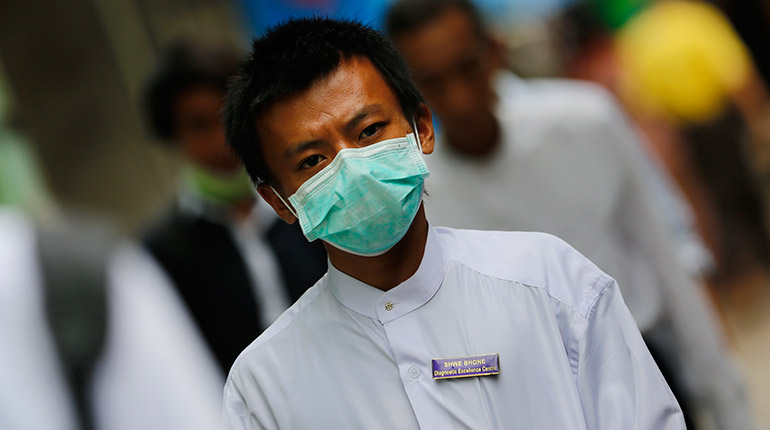Authorities hope to allay public concern following a recent outbreak of the H1N1 virus, which they say is a common occurrence

The recent outbreak of H1N1 influenza in Myanmar is no cause for alarm, authorities said in a statement released on Monday, after three people lost their lives to the virus and a further 13 were confirmed to have contracted it.
“There is no need to panic because it usually happens every year,” the Ministry of Health and Sport announced, in a bid to stem the tide of panic spreading across the country. By Monday afternoon, news of the deaths had already circulated widely on social media, resulting in a visible increase in face masks in downtown Yangon, according to Reuters.
Aye Ko Ko, the medical superintendent of Yangon Hospital told the Irrawaddy on Tuesday that a pregnant woman and a man from Bago – both in their 30s – had died of swine flu at 3pm on Monday.
The deaths of the two patients, who were not among the three already being treated for the virus in Yangon, brought the total fatalities to three, after a six-year-old boy had died in Matupi, a state close to the northwestern border with India, from respiratory problems suspected to have been caused by H1N1.
Last year, nine people were reported to have contracted the virus, according to Yangon Regional Public Health Department.
But while the outbreak is not entirely new, decades of living under a military regime suspected of playing down disease outbreaks and other bad news has made the population sceptical of government announcements on such matters.
The World Health Organisation, which is providing assistance to the government, has yet to release a statement. However, Than Tun Aung, deputy director general at the ministry’s infectious diseases department, told Reuters that the authorities had no vaccines for the virus and was struggling to treat those infected.
“The treatments have very little effect on the patients who are infected with H1N1,” he said.
Myanmar calls for calm after three die of swine flu
Authorities hope to allay public concern following a recent outbreak of the H1N1 virus, which they say is a common occurrence Myanmar man wears a mask as he walks in in Yangon, Myanmar, 24 July 2017. Photo: EPA/Lynn Bo Bo

